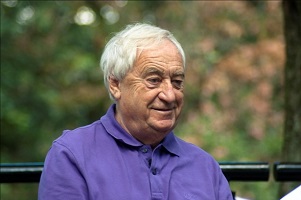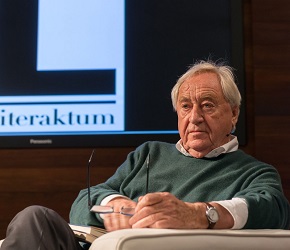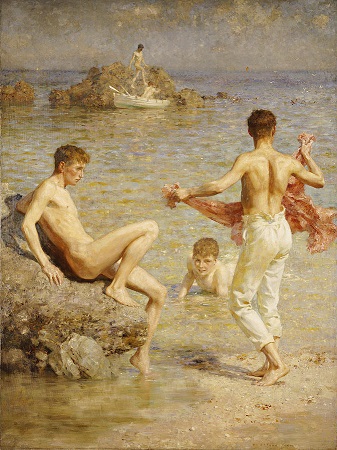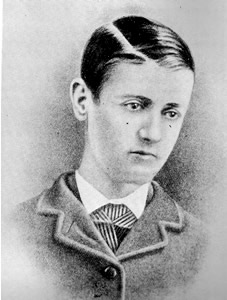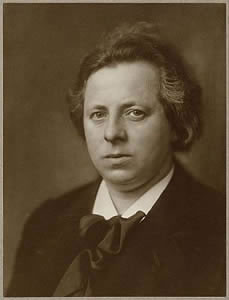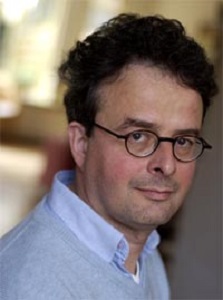Dolce far niente
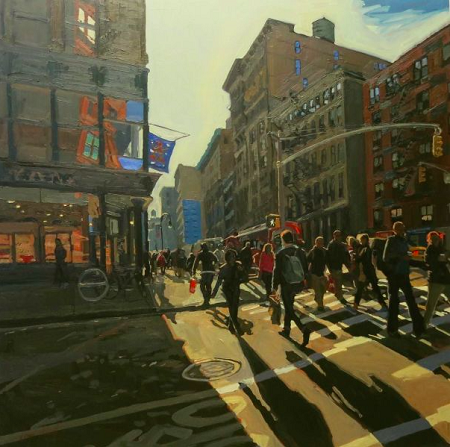
Bleeker Street, Summer
Summer for prose and lemons, for nakedness and languor,
for the eternal idleness of the imagined return,
for rare flutes and bare feet, and the August bedroom
of tangled sheets and the Sunday salt, ah violin!
When I press summer dusks together, it is
a month of street accordions and sprinklers
laying the dust, small shadows running from me.
It is music opening and closing, Italia mia, on Bleecker,
ciao, Antonio, and the water-cries of children
tearing the rose-coloured sky in streams of paper;
it is dusk in the nostrils and the smell of water
down littered streets that lead you to no water,
and gathering islands and lemons in the mind.
There is the Hudson, like the sea aflame.
I would undress you in the summer heat,
and laugh and dry your damp flesh if you came.
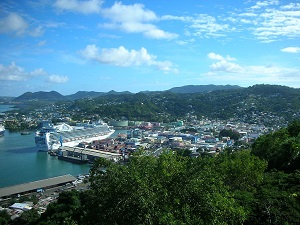
Castries
De Nederlandse dichter en schrijver Cees Nooteboom werd geboren in Den Haag op 31 juli 1933. Zie ook alle tags voor Cees Nooteboom op dit blog.
Uit: Roads to Santiago (Vertaald door Ina Rilke)
“To make time melt strikes me as a peculiarly Spanish occupation, and nowhere has time been melted so handsomely as on the decaying, snaillike blob of Dali’s watch. As I wait for my car, I unfold the Mundo Diario and read the letter the ailing painter has written to his people to explain how ill he is not. The signature under the typed statement (letterhead: TEATRO MUSEO DALI) is shaky, but still familiarly distinctive — the letters of the magical name subsumed into a drawing of a Quixotic horseman, the lance thrusting bravely forward into the blank space of the paper. Poring over that signature, I think how Spanish Dali’s appearance is, how easily his self-made image will be absorbed into the national panopticum alongside pancake-frying Teresa of Avila, the nuns’ corpses strung on the gallows of the Civil War, the garrotte, and Philip II languishing in the dungeon that is his own palace. Shutting my eyes, I can see the painter, the two pencil-sharp points of his moustache aimed like antennae upwards into the ionosphere to receive rarefied, coded messages incomprehensible to all other moustaches. STATEMENT FROM DON SALVADOR AND DONA GALA DALI reads the heading with majestic simplicity — no addressee specified.
“We are pleased to bring to the attention of all … the sincere hope of the undersigned artist …” — and more such dignified phrases give the letter the aura of a bulletin, issued at the palace gates when the king is known to be dying. Bitter earnest or is it black humour, you never know, but in any case “the undersigned artist” makes it known to his people that he has already set to work on a new painting. When it is finished it will go to his wife, and anon she will pass it on to the museum. On the inside page the signature is repeated, considerably enlarged. The newspaper editors have submitted it to a Professor Lester. It is not explained who this is, but in these parts if someone does not have a Spanish-sounding surname and has no first name at all it means that whoever he is need not be taken too seriously. The professor advises Dali to take great care between 4 and 19 November, for at this time the planet Pluto and the star Lilith — the black moon — are in conjunction in the sign of Cancer, and this spells trouble above Cadaques, where the artist lives. He can escape disaster by travelling to Greece, where it is safer for Taureans at this particular time.
My route takes me through Zaragoza, by motorway from Barcelona to Soria, to old Castile, Castilla la Vieja. I see the town lying in the distance like a vision, shimmering in the heat. This is where the true Spain begins, the meseta, the high plain of Castile, empty, scorched, as huge as an ocean. Not much can have changed since the thirteenth century, when the principal sheep farmers joined forces to secure free passage of their flocks from the drought-ridden prairies of Extremadura to the green pastures of the northern cordillera. Soria pura, cabeza de Extremadura is the motto in the city’s coat of arms. This is where the kingdoms of Castile and Aragon met the Muslim south. All over this region, transected by the River Duero like a line of defence, rise the ruins of once mighty fortresses whose sturdy contours still dominate the landscape.”
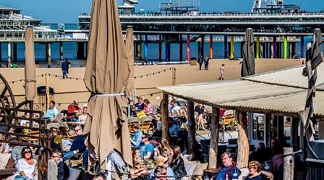
Zomers Den Haag
De Nederlandse dichter en schrijver Wouter Godijn werd geboren in Amsterdam op 31 juli 1955. Zie ook alle tags voor Wouter Godijn op dit blog.
Over hemelse schoonheid
Een beroemde dichter terroriseerde zijn gezin;
het contrast tussen zijn gezin en zijn gedichten kon hij niet verdragen;
de ‘prins der duisternis’: hij bracht de hemel naar de aarde
en leidde kinderen en vrouwen naar de hel die hij rondom de hemel maakte
als hij geen trompet speelde.
Kun je schrijven: voor deze kunstenaars was de schoonheid van hun kunst een te zware last?
(Zijn deze formuleringen helder en eenvoudig
of moet ik er nog aan werken?)
Ik bedenk – terwijl ik Miles Davis opzet –
dat ze die schoonheid beter niet hadden kunnen maken
als ze dan minder slecht waren geweest.
Van dat streng zijn ga ik me groter voelen,
Plato- en kikkerachtig zwel ik op,
ik voel me een trompet waarop wordt gespeeld.
Ik spreek in gedachten tegen mijn vrouw en dochter:
jullie verwoesten mijn leven! Alles maken jullie kapot!
en ik word nòg groter, als deeg rijst hemelse schoonheid rond me op.
‘Ga weg!’ roep ik. ‘Ik wil geen hemelse schoonheid!’
Ik wil slecht schrijven en onbenullig zijn.
Ik ga naar mijn vrouw en dochter en aai ze over hun hoofd;
ik voel mezelf veranderen in een aardige man.
Het zonlicht aait de slootjes rondom het huis;
overal beginnen kikkers te kwaken.
De enige waardevolle muziek en de enige waardevolle poëzie, besef ik, klinkt zo:
kwaak-kwaak-kwaak.
Nu is iedereen gelukkig.
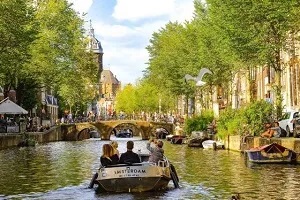
Zomers Amsterdam
Zie voor nog meer schrijvers van de 31e juli ook mijn blog van 31 juli 2018 en ook mijn blog van 31 juli 2017 en ook mijn twee blogs van 31 juli 2016.

